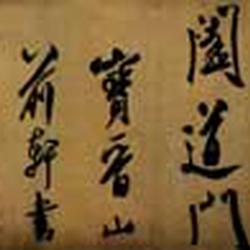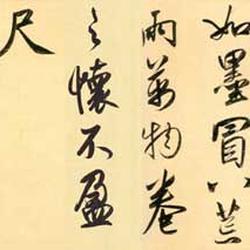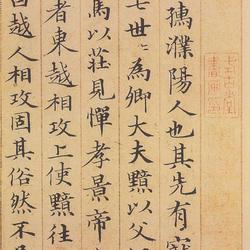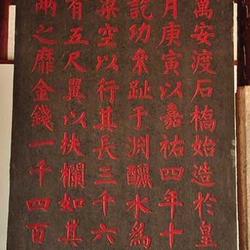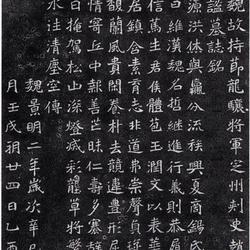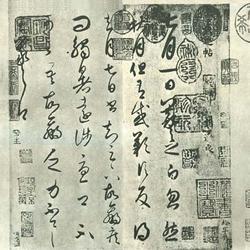"Dangba Stele", also known as "Longxing Temple Stele", was written by Zhao Mengfu of the Yuan Dynasty in the third year of Yanhu (1316), on paper, 33.6 cm in length and 166 cm in width. . Regular script, 125 lines, 923 characters in total, now in the Palace Museum. "Zhao Mengfu Danba Stele" was written by Zhao Mengfan at the age of 63 under the orders of Renzong of Yuan Dynasty. It is the representative work of regular script in Zhao's later years. "Zhao Mengfu Danba Stele" has beautiful brushwork, vigorous and vigorous style, and unique style. It is free and unrestrained in the regular and strict parts. The stipples are thoughtful and thoughtful, and the brushwork is calm and majestic, which fully embodies the charm and spirit of Zhao's calligraphy. Although it is based on Li Yong's "Lushan Temple Stele", it is more stretched and relaxed, without its dangerous and arrogant attitude, and transformed into a dignified, solemn, graceful and beautiful posture. Today, the ink photocopy of "Zhao Mengfu Danba Stele" is published for reference by calligraphy enthusiasts.
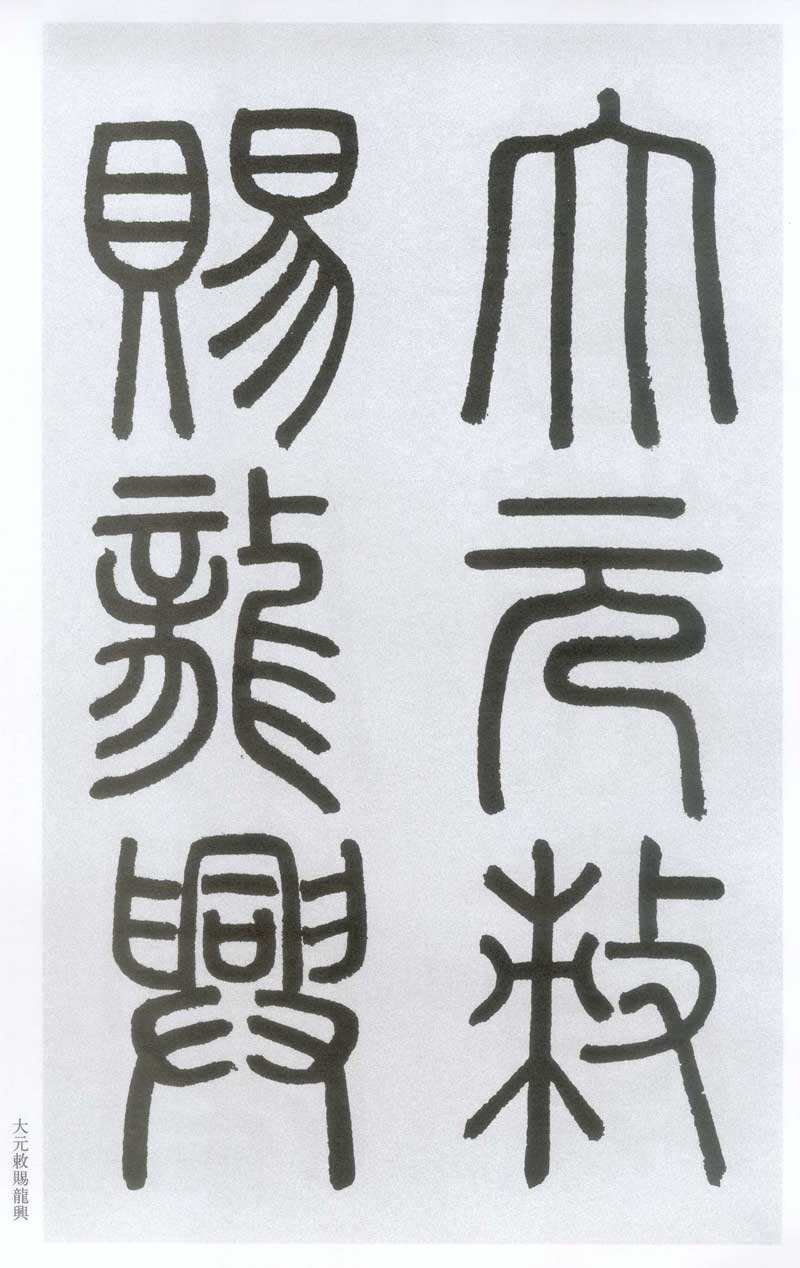
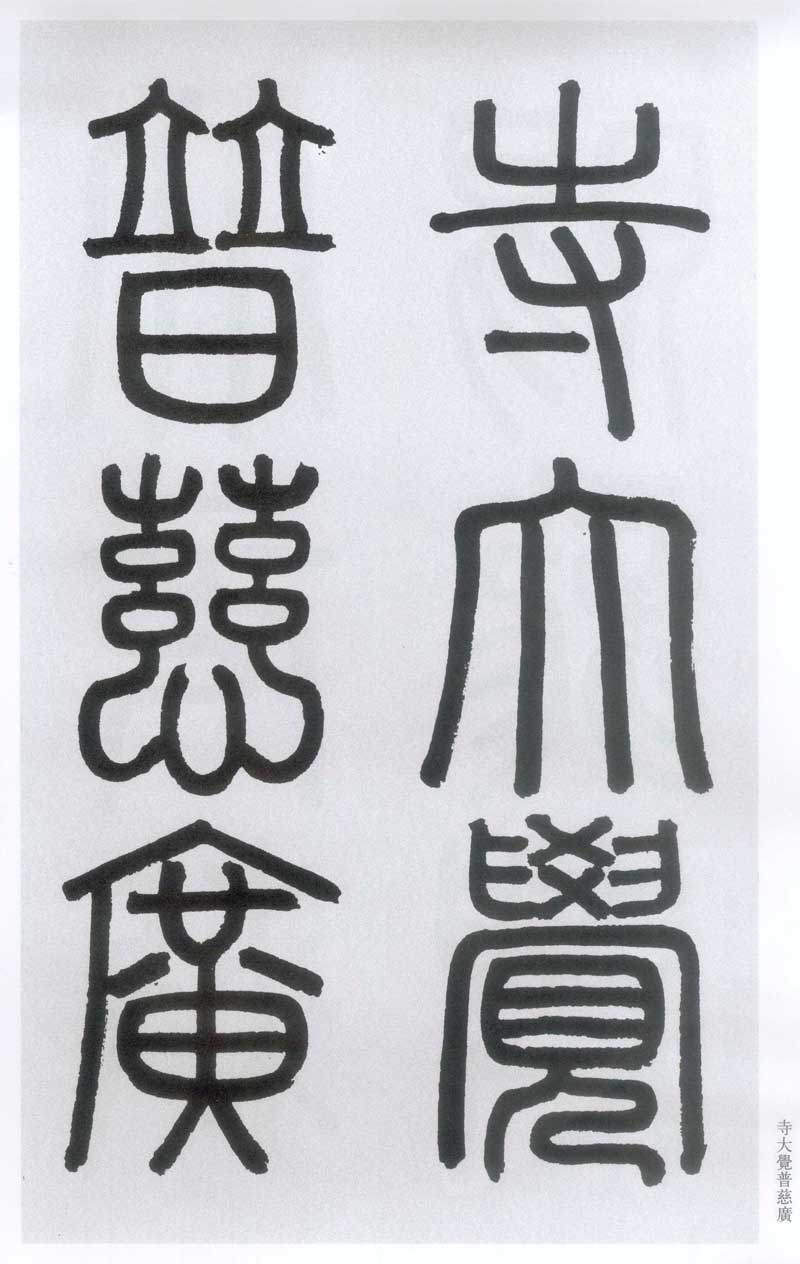
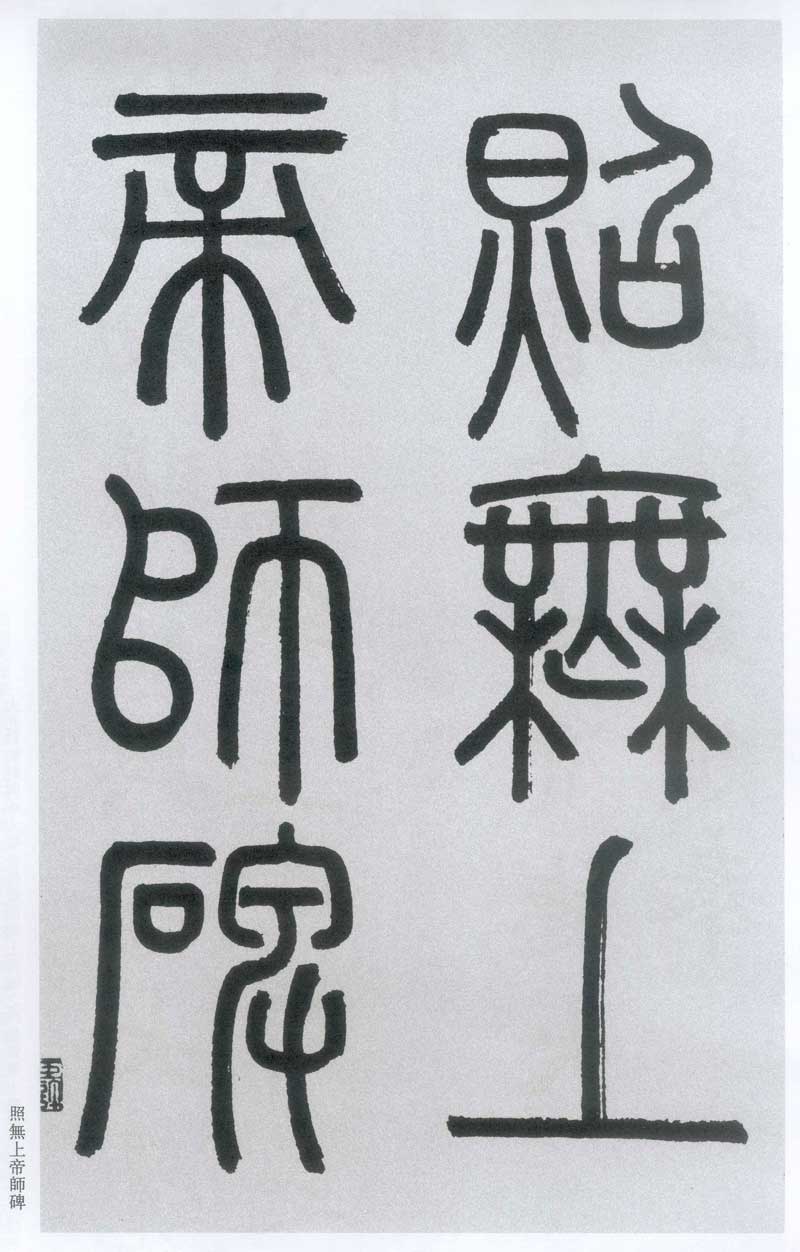
At the back of the volume are postscripts by Yao Yuanzhi, Yang Yan, Li Hongyi, Pan Zuyin, Wang Yirong and others of the Qing Dynasty. The seal is collected by Xu Naipu and others of the Qing Dynasty. It is recorded in books such as "Dongtu Xuanlan", "Qinghe Secret Box List", "Nanyang Famous Painting List", "Shigutang Calligraphy and Painting Collection" and other books.
Wang Shizhen of the Ming Dynasty believed that Zhao Mengfu's calligraphy in his later years was "the most famous calligraphy of Li Beihai". The brushwork in this volume is beautiful, vigorous and vigorous, with a unique style. It has a natural and innocent charm in the regular and solemn place. It can be said that the strokes are lifted and the words are upright, which fully embodies the Zhao style calligraphy. The charm and charm. Although it is based on Li Yong's "Yuelu Temple Stele", it is more relaxed and relaxed, and its dangerous and arrogant attitude is transformed into a dignified, solemn, majestic and vigorous posture. Both the brushwork and the frame are from Erwang, which is dignified and simple, "old and vigorous".
Although Zhao Mengfu's calligraphy adheres to the tradition, he is not limited by old methods. He can often change the calligraphy style according to different needs, but no matter how he changes, he can use it freely and skillfully. Therefore, his calligraphy has both a profound traditional foundation and a unique style. Distinctive personality traits, stand out from the crowd.
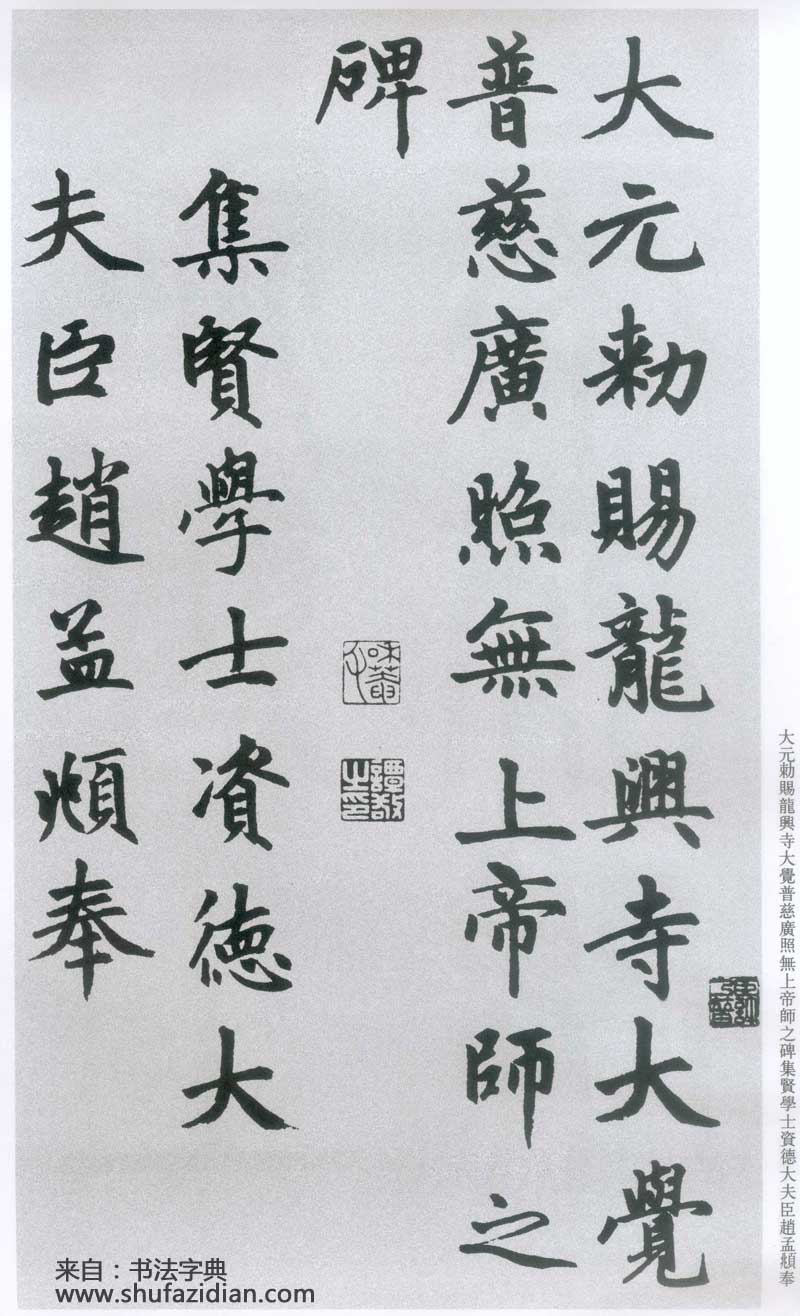
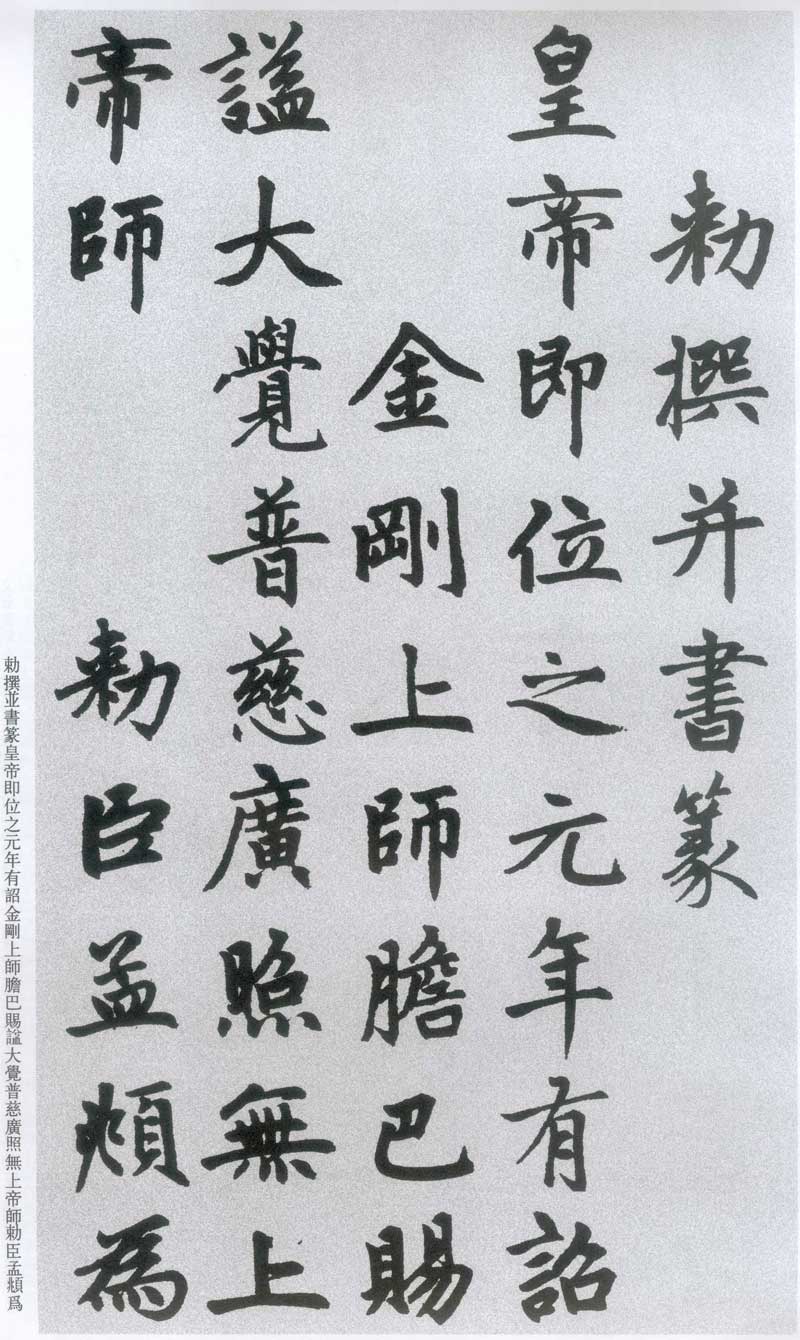
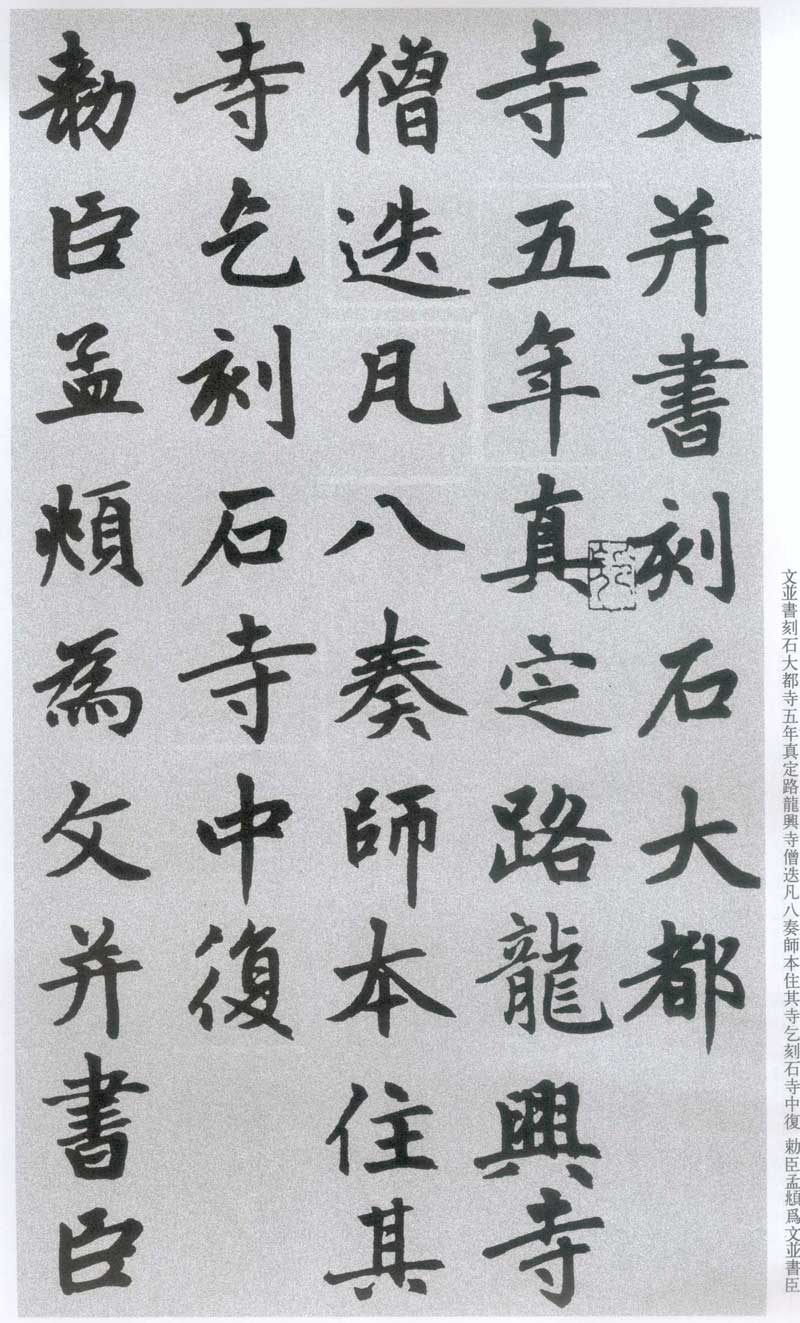
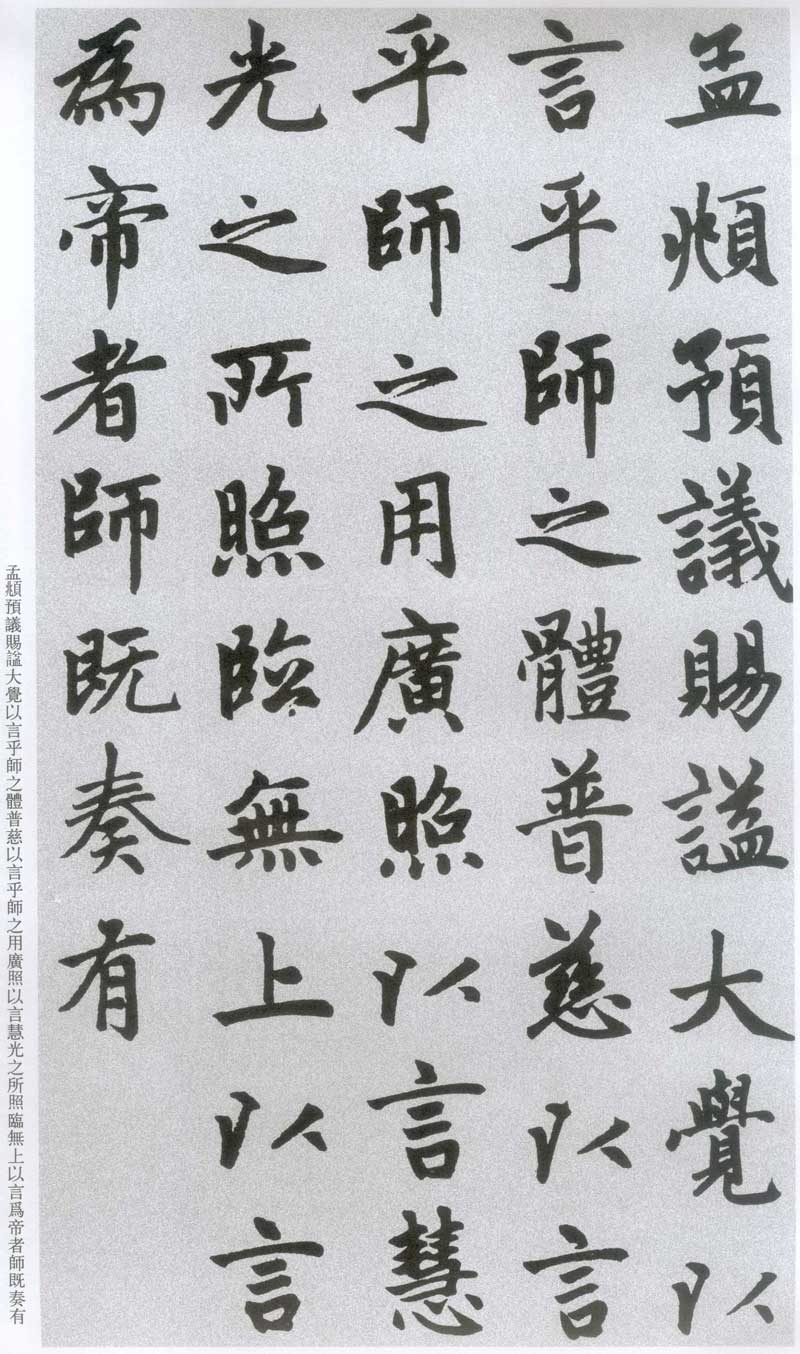
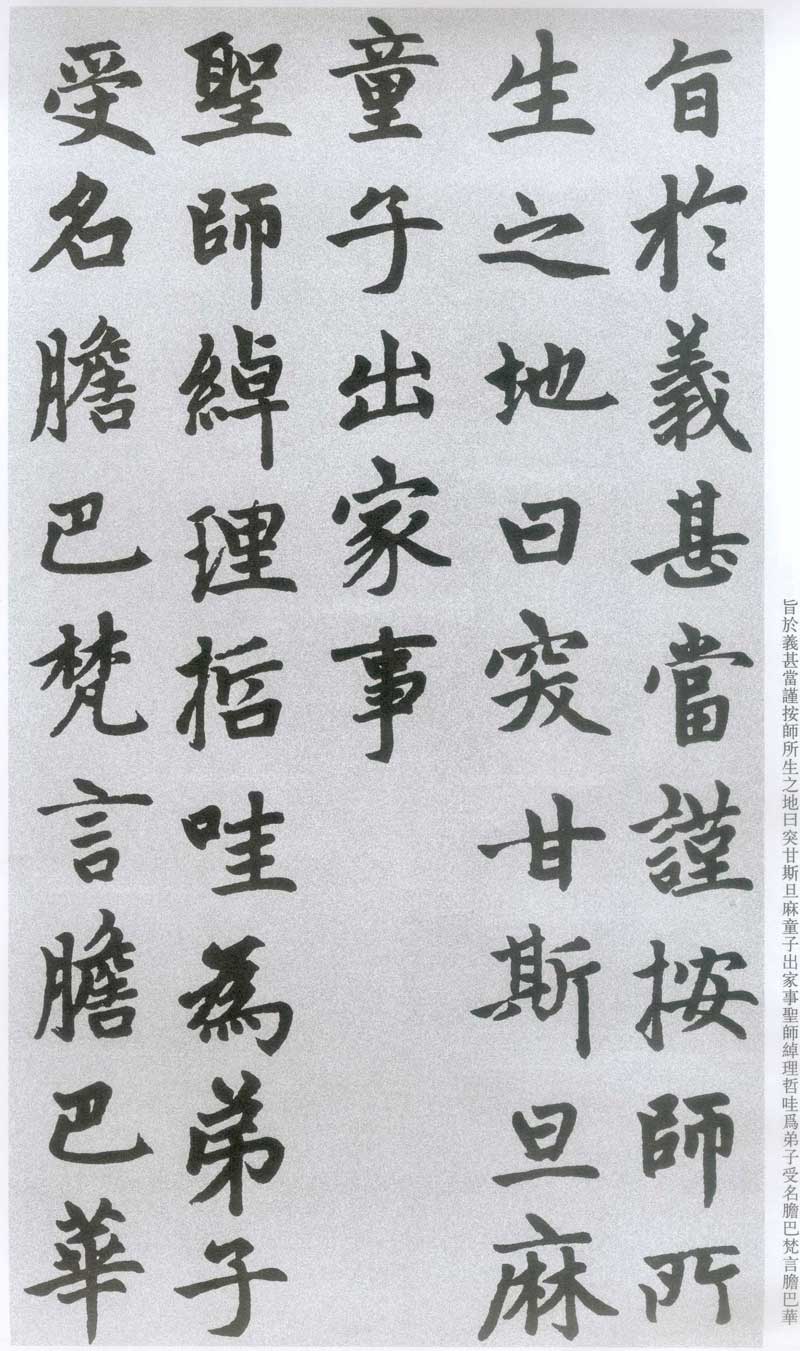
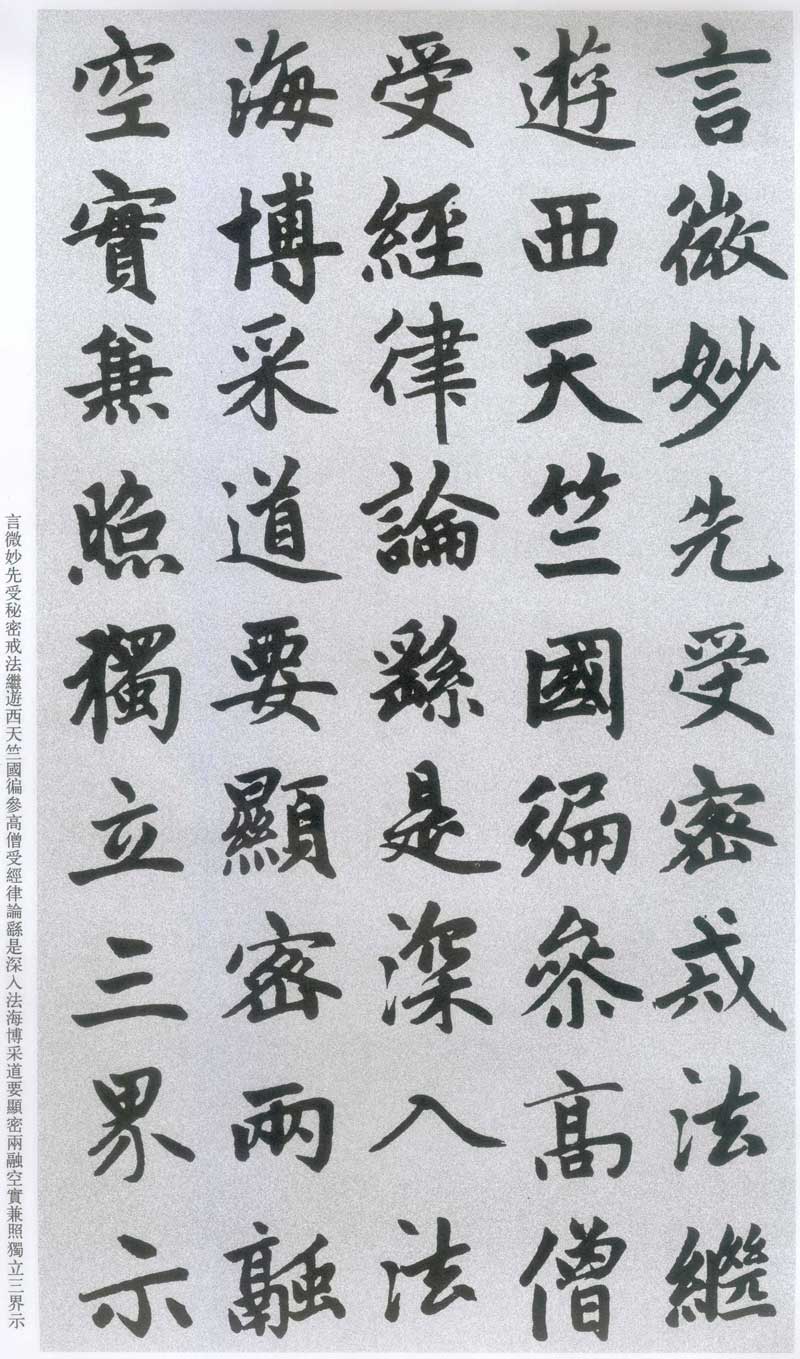
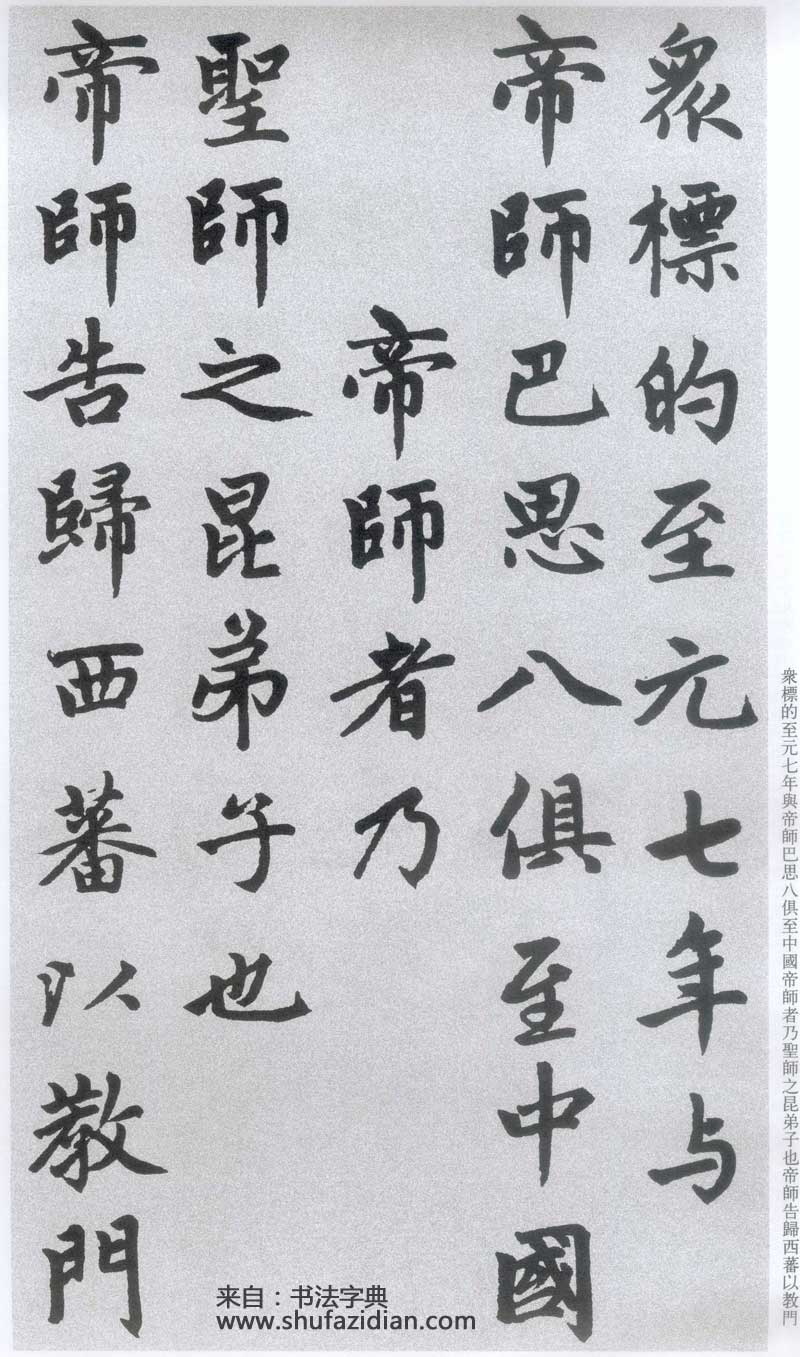
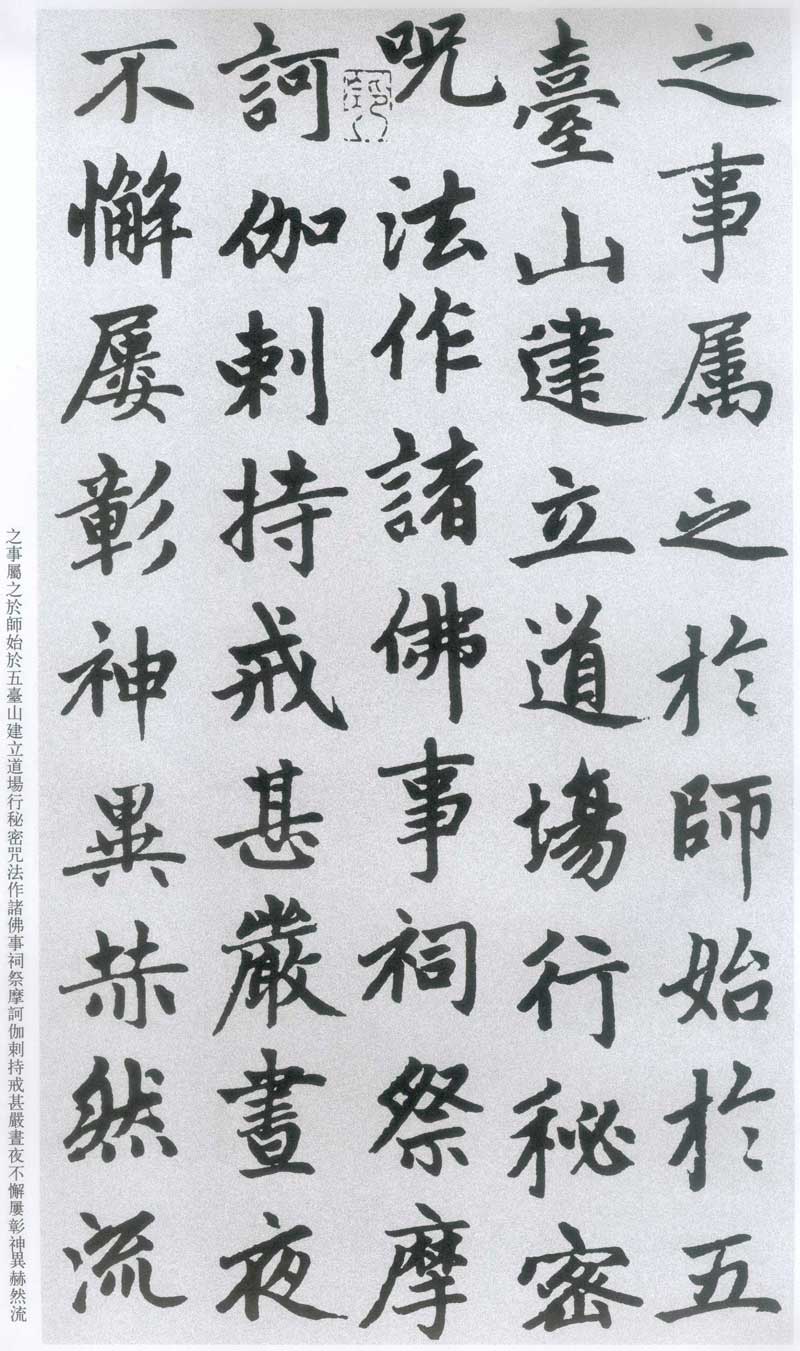
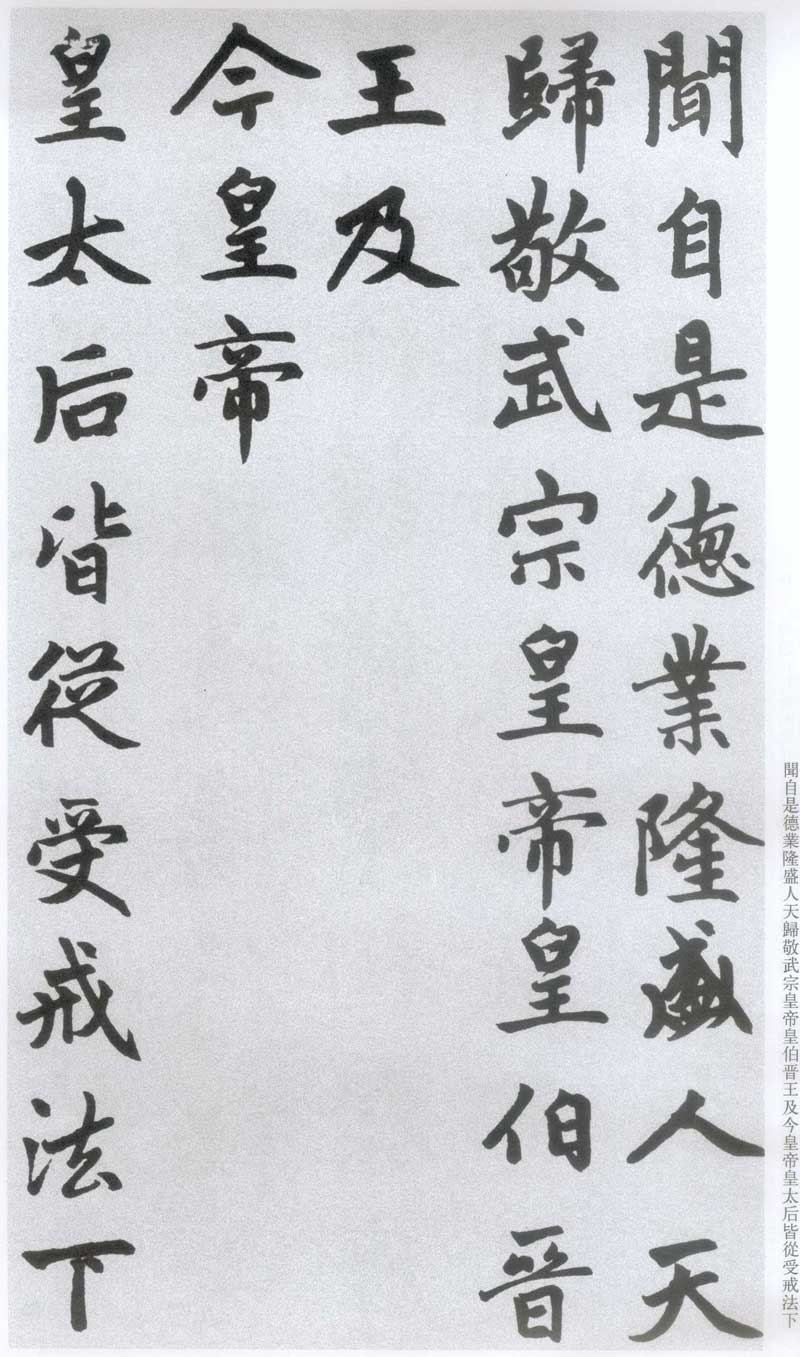
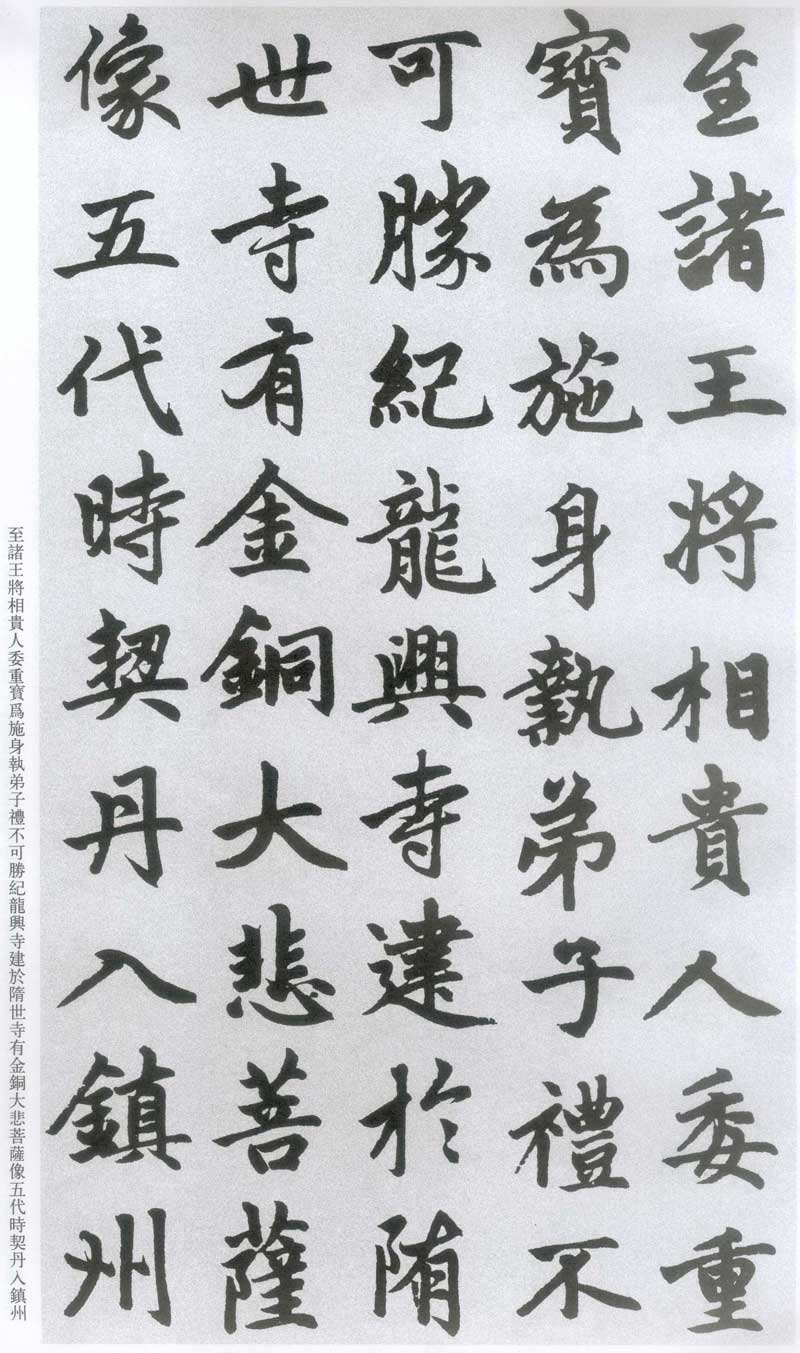
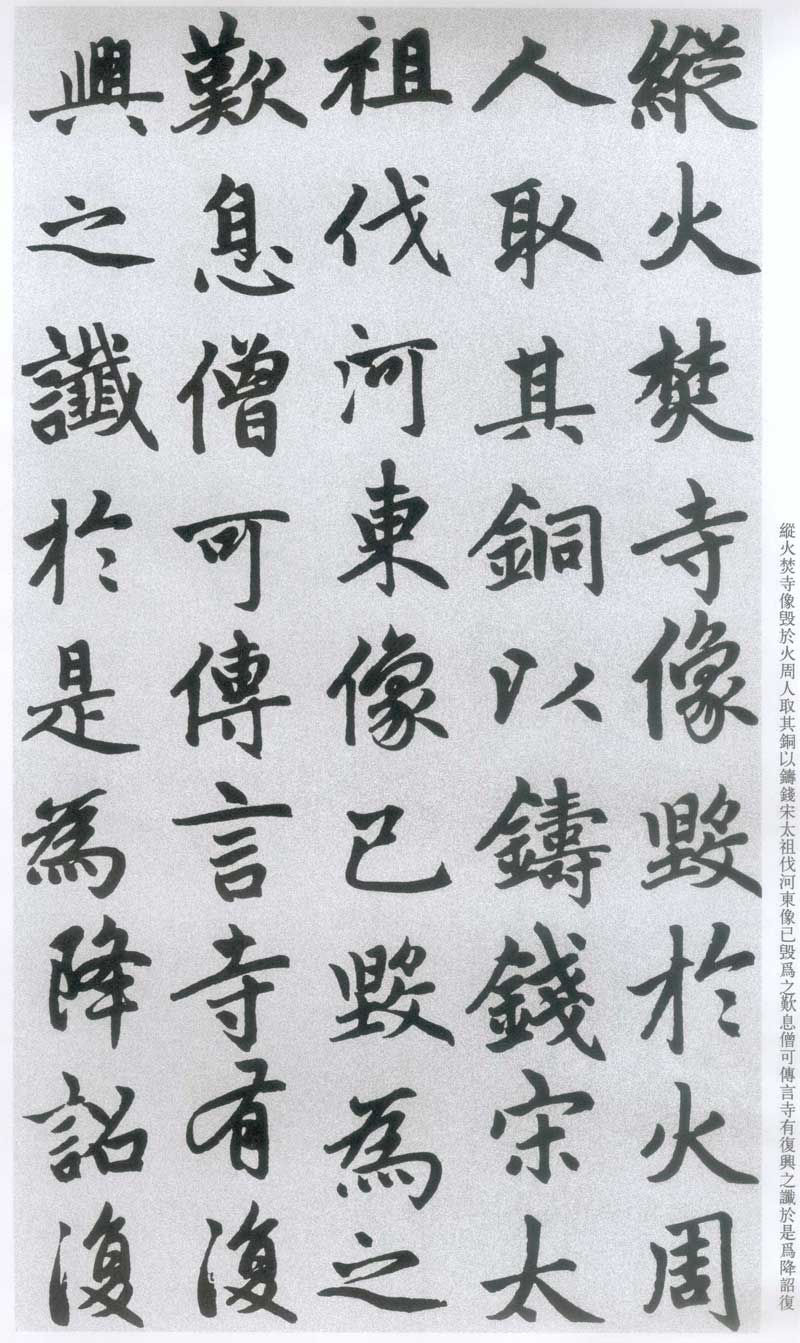
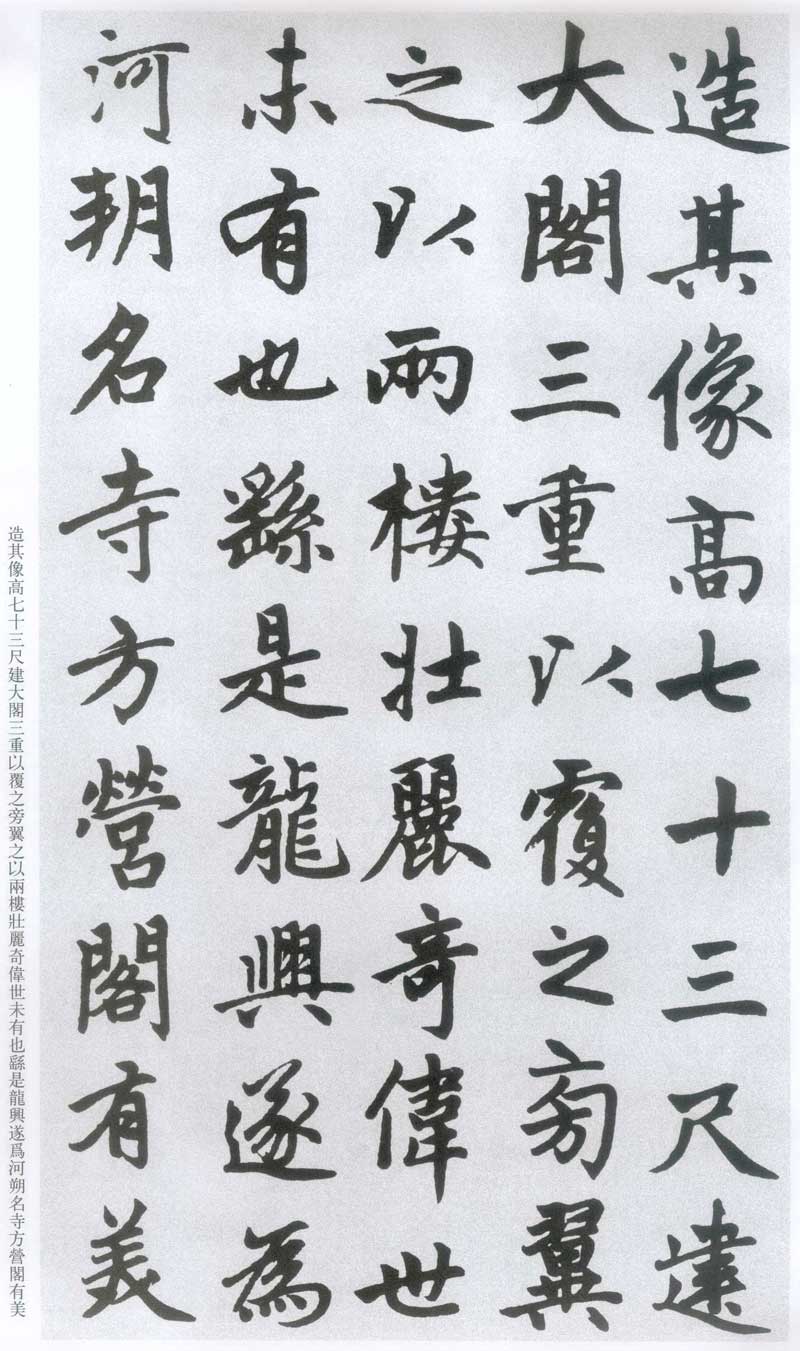
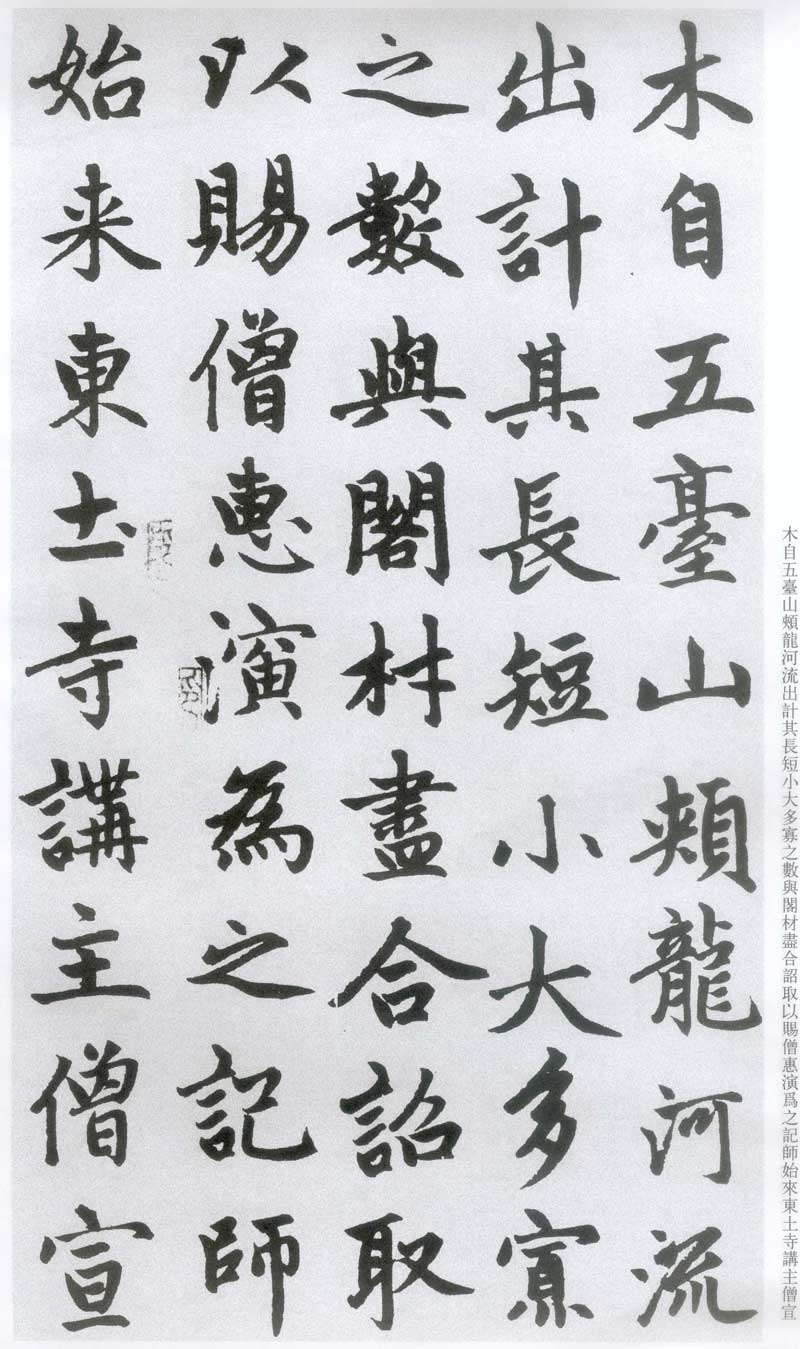
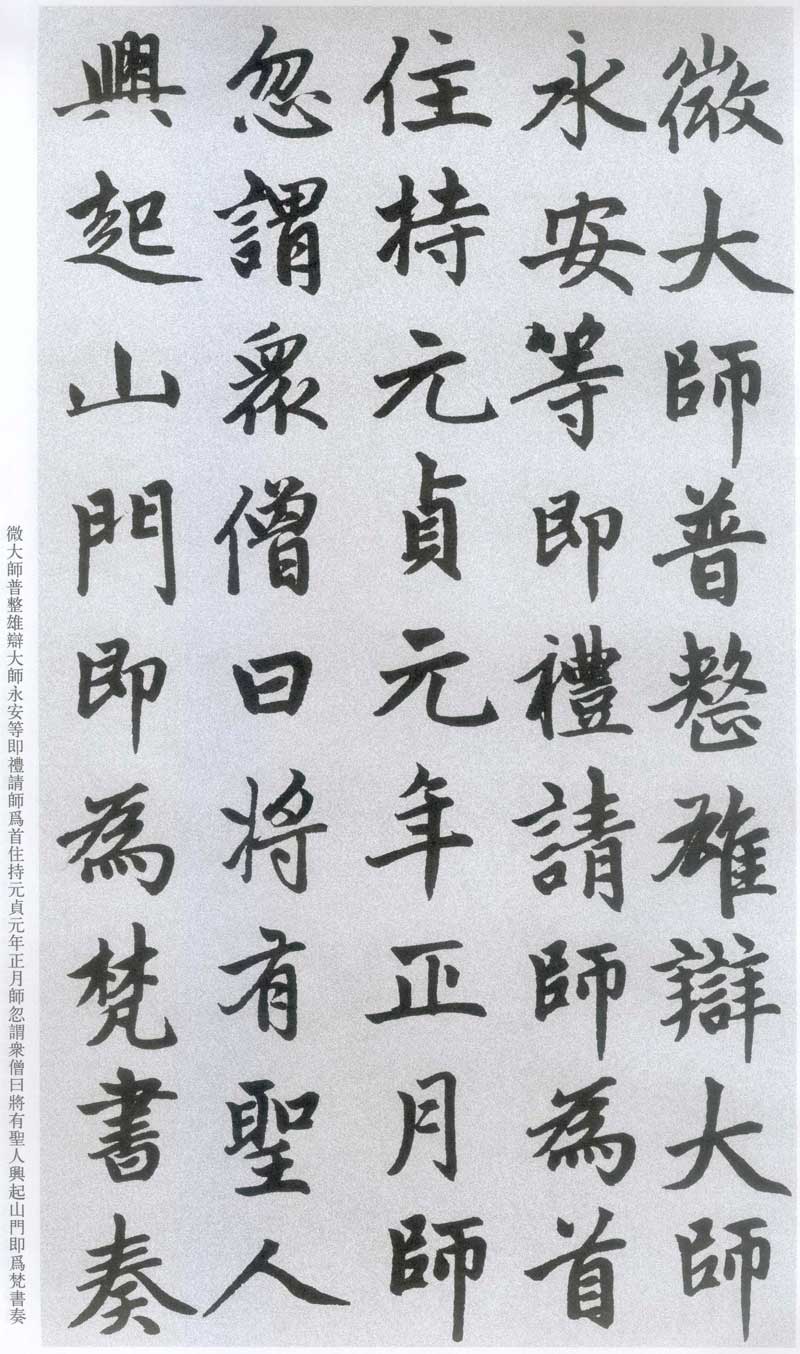
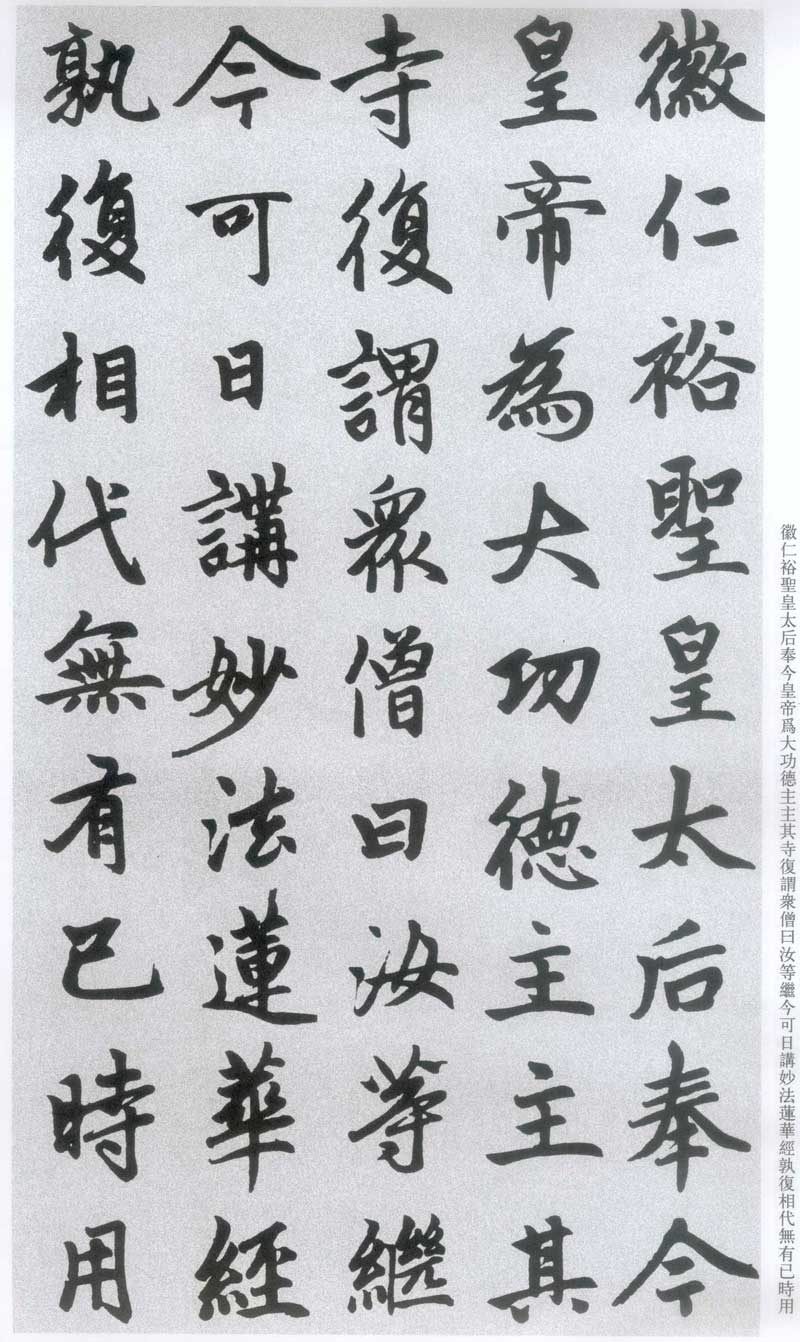
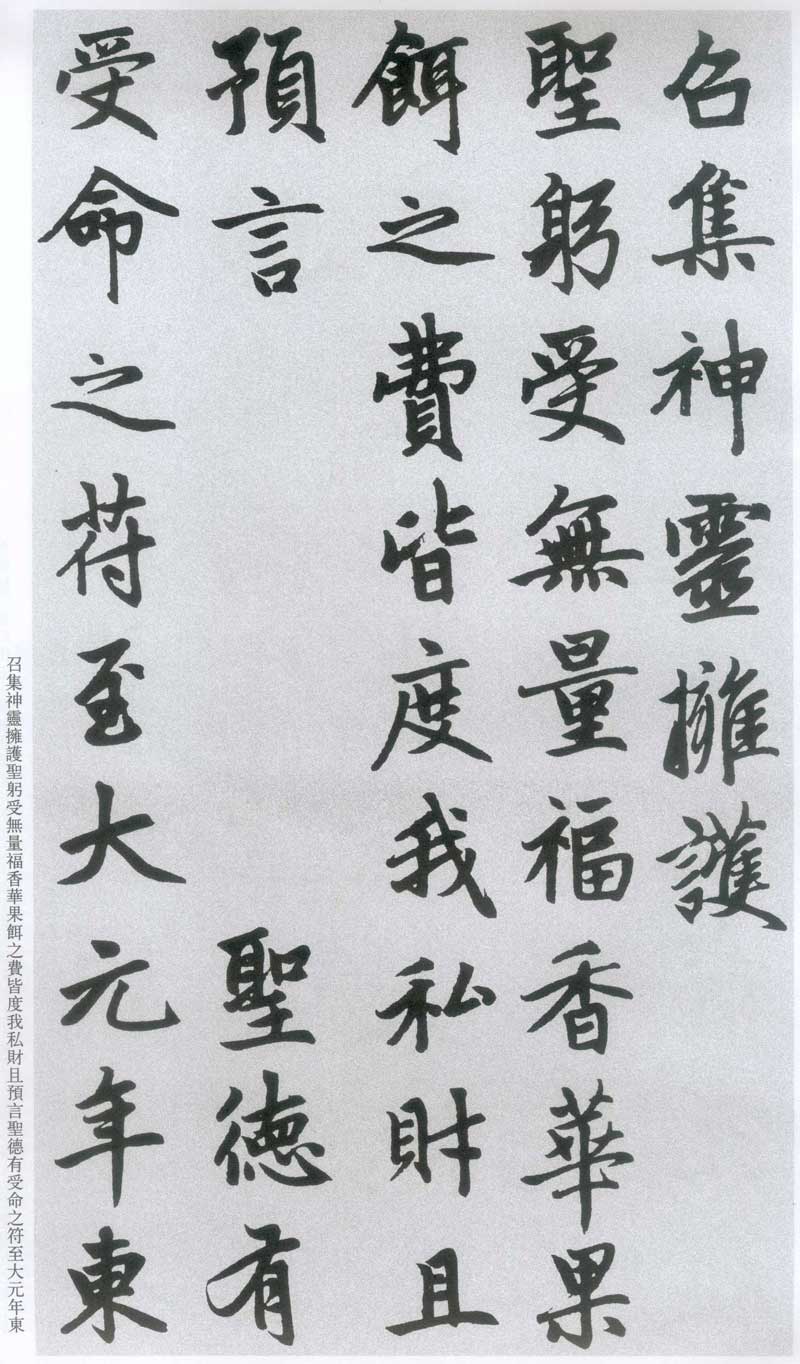
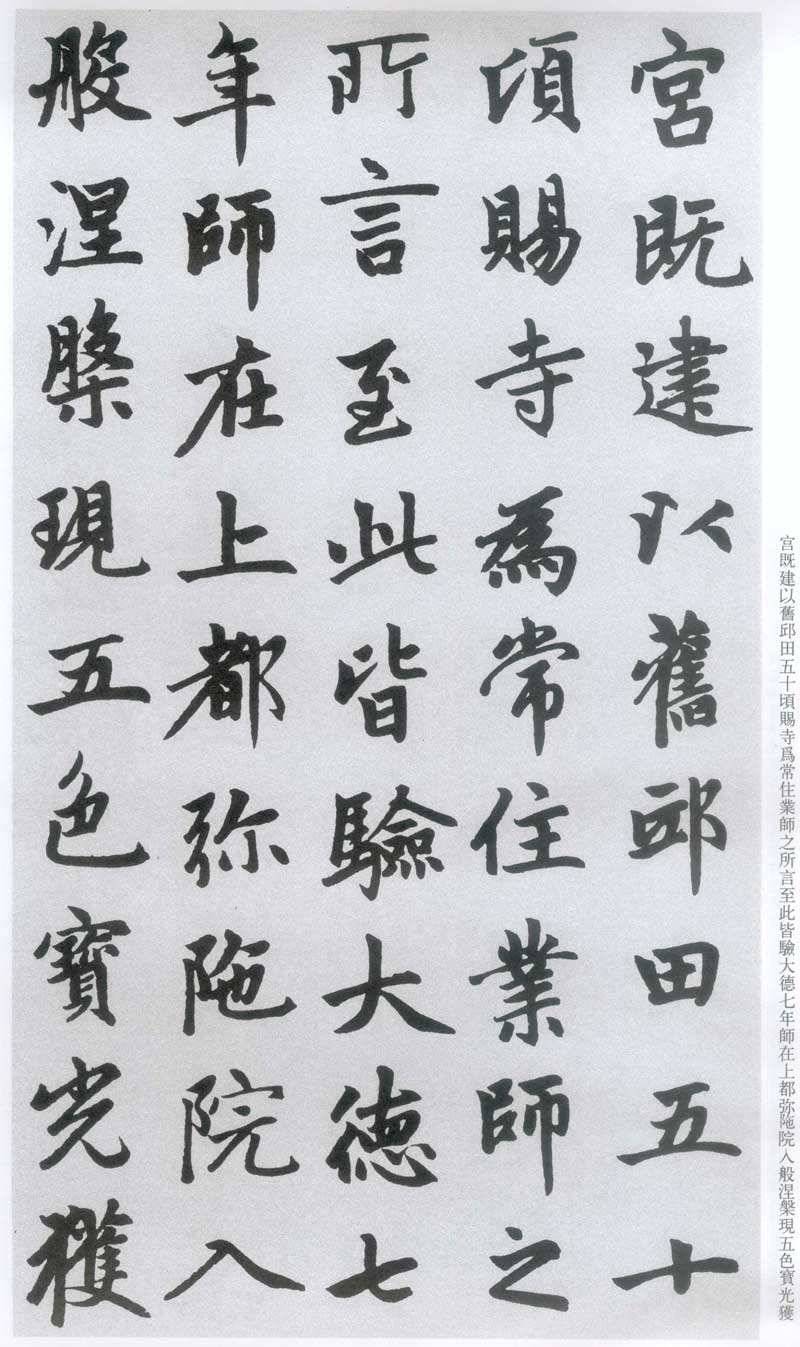
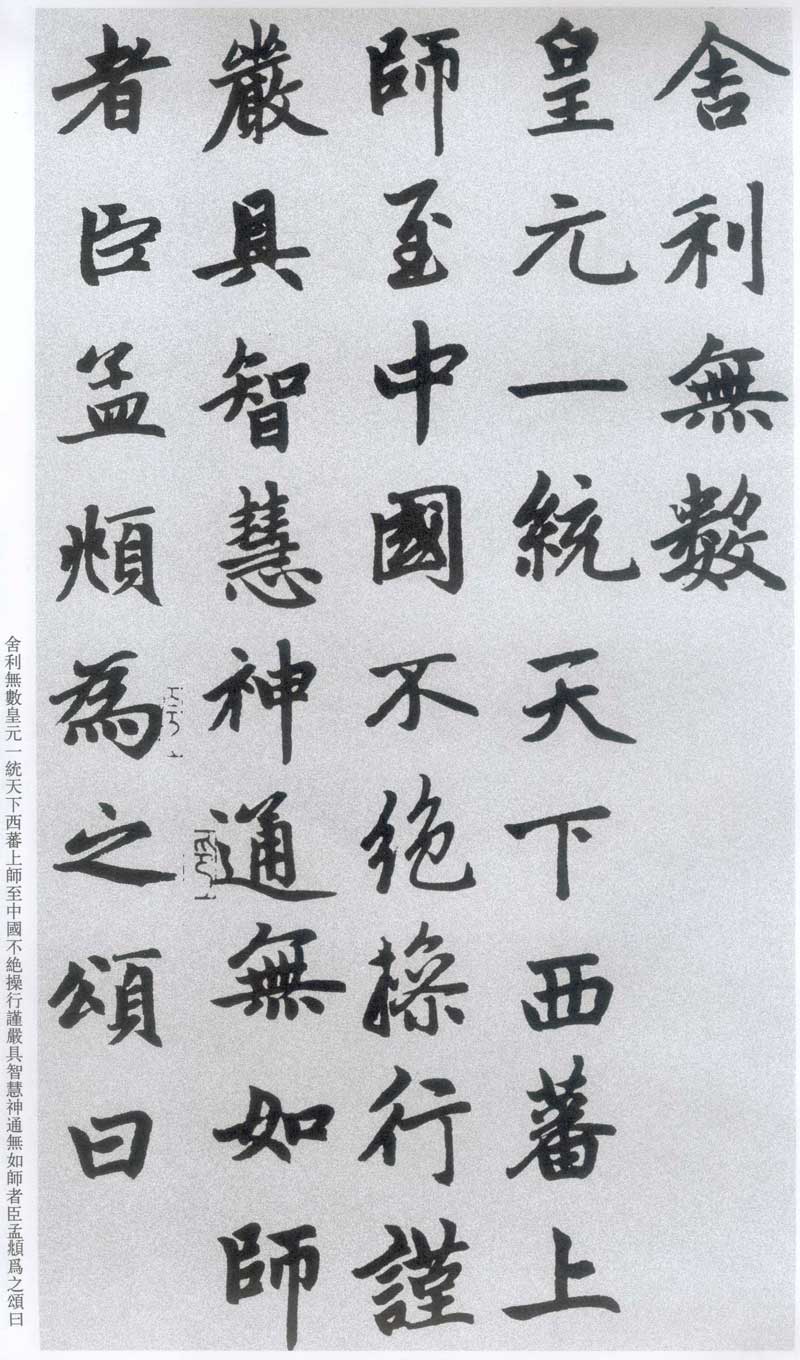
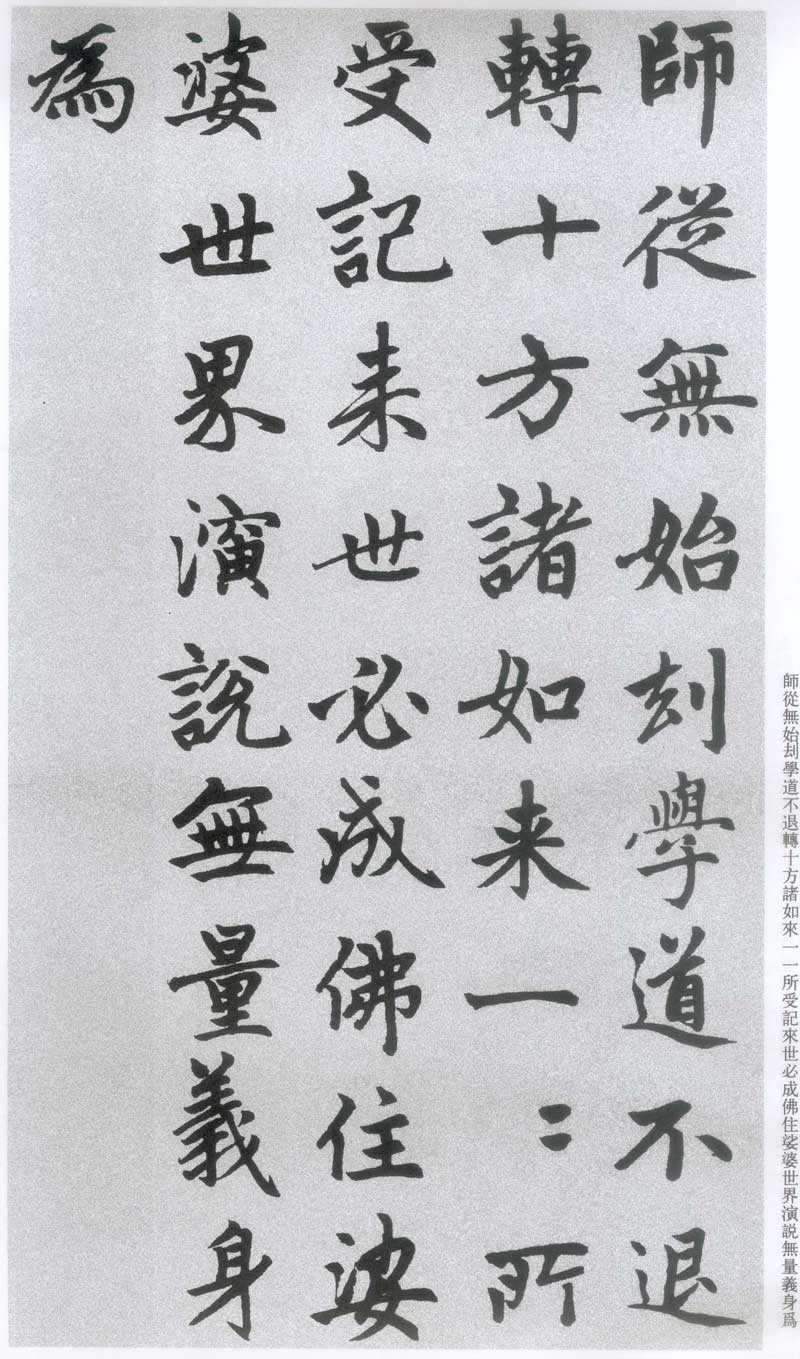
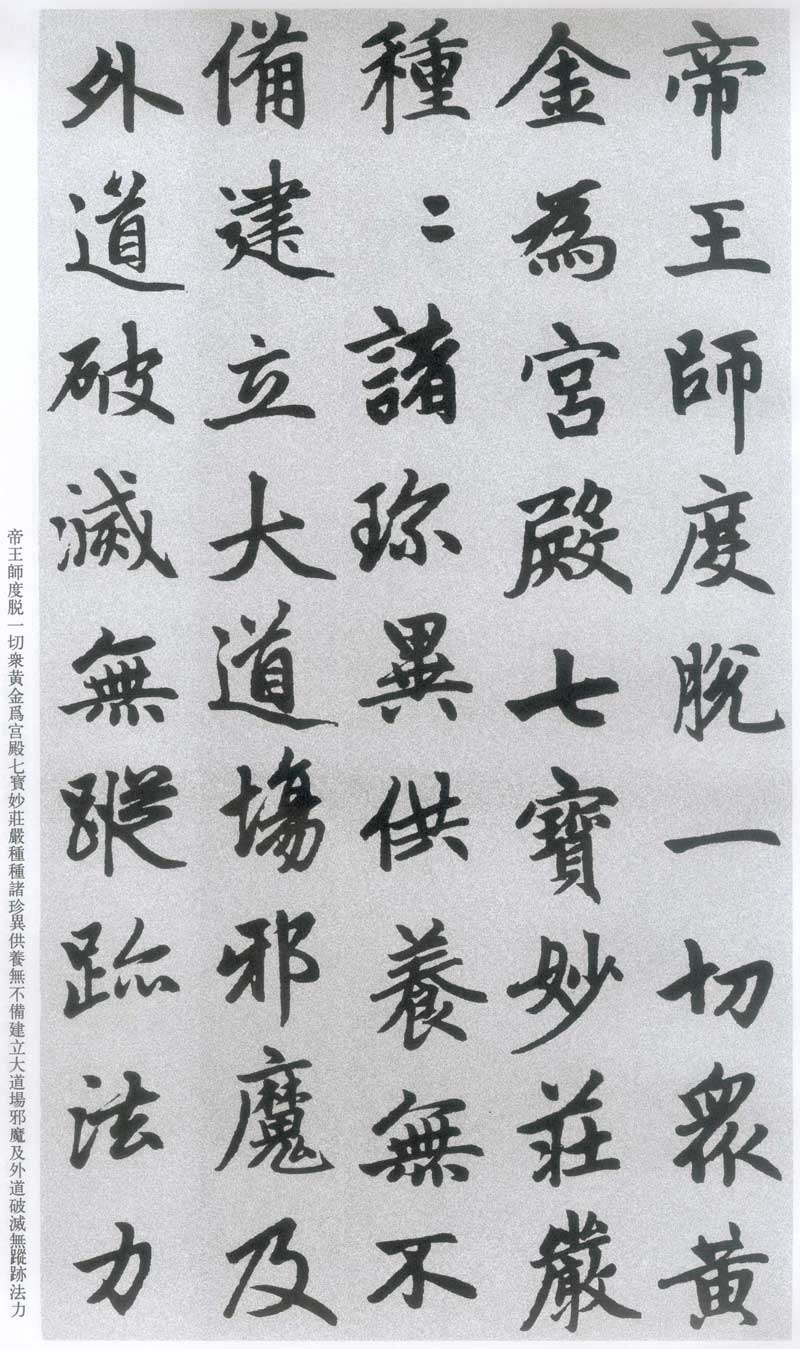
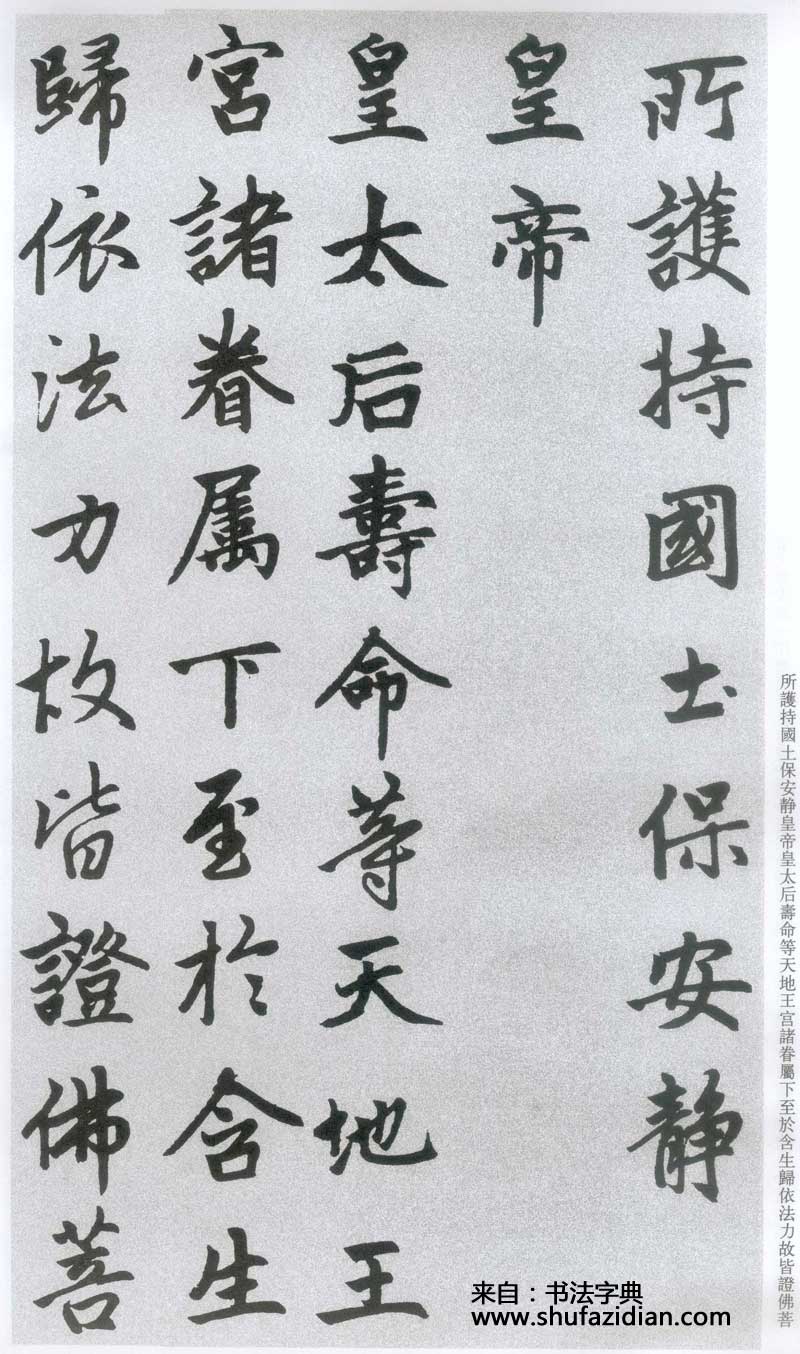
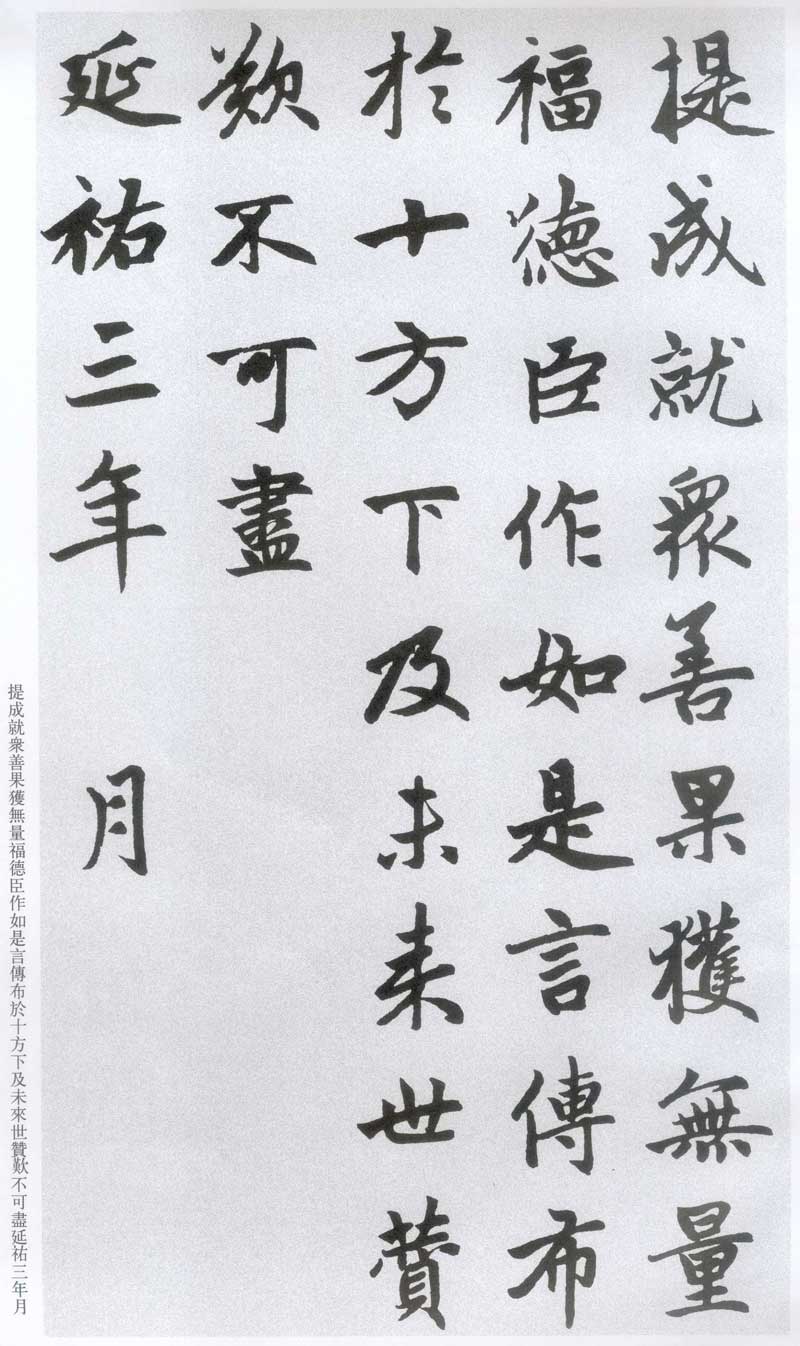
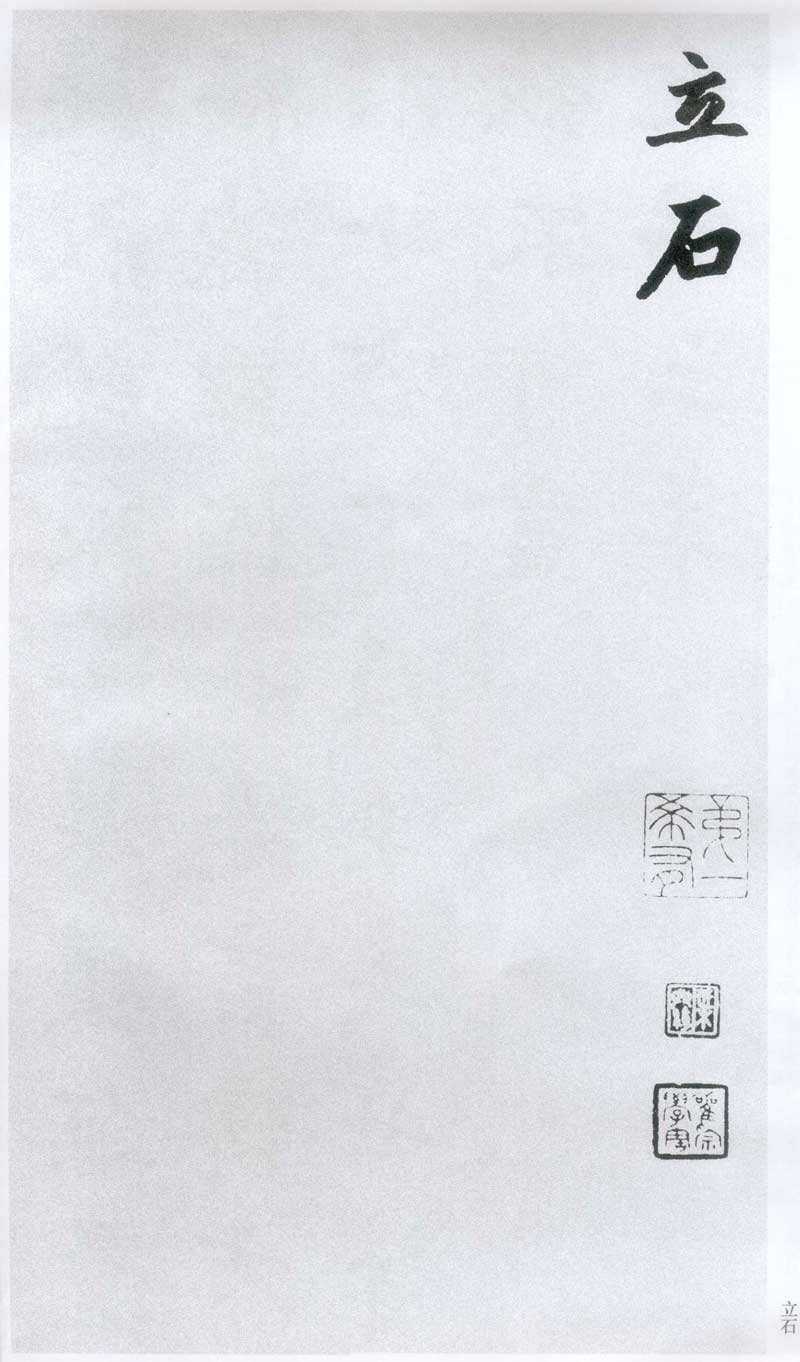
Zhao Mengfu is best at regular script, small regular script and running script. Xian Yushu, Ni Zan and others all said that his small regular script was the best among all styles, and they were impressed by his speed and ease in writing small regular script. It is said that he can write 10,000 to 20,000 words in regular script every day. Huang Gongwang said that if he had not seen his writing flying with his own eyes, he would not have believed that such a thing existed in the world. This is of course the result of practice makes perfect.
The most influential thing is his regular script, known as "Zhao Ti" in the world. After the Tang Dynasty had locked the courtyard gate in Dakai, only Zhao Mengfu was able to "a branch of red apricot came out of the wall". He broke through the overly strict rules of Tang Kai, and absorbed the strengths of Li Beihai, integrating the running style of writing into it. The writing style is flowing, lively, and powerful. In the past, many people said that he was "kitsch" and a "book slave". If it wasn't for the lack of research on him, it would be the common disease of following what others say. Jiao Hong said it more fairly: "Wu Xing's unreachable place is full of rhyme. People in the world follow it, with more flesh and less bone strength, to the point of being called a pig. The book disease is serious, and the accumulation of learning gradually becomes. With this liberation, you can enter the world. Samadhi. The disciples of the world see one kind of gentleman taking advantage of his appearance to flatter him and write books but don’t know the other, so he sees that his books are not widely spread.” That’s right, how can you blame Xi Shi for imitating Dong Shi?
"Dangba Stele" was written by Zhao Mengfu when he was 63 years old. It is one of his representative works in regular script. Narrate the meritorious deeds of Danba, the emperor of the Yuan Dynasty. According to the "Biography of Shi Lao" in Volume 202 of "History of the Yuan Dynasty" and this article, Danba, a Gongjia Gelasi, was a native of Gansidanma, Xifantu, and became a monk when he was a boy. In the seventh year of the Yuan Dynasty (1270), he came to China with his imperial master Basiba and established a Taoist temple in Mount Wutai. When Emperor Chengzong was established, he was ordered to offer sacrifices to God Mahakara, which was fulfilled. In the first year of Yuanzhen (1295), while he was in Longxing Temple, he wrote to the Empress Dowager, consecrating Emperor Renzong as the great meritorious master of Longxing Temple. At that time, Renzong had not yet been established as the prince. The monks in the Danba Ming Temple "said to preach the Lotus Sutra of Wonderful Dharma. It is timeless to recite the Lotus Sutra. It is used to summon the gods, support the holy bow, and receive immeasurable blessings." Although Danba passed away in the seventh year of Emperor Chengzong's reign (1303), after Wuzong ascended the throne and established his younger brother Renzong as the crown prince, Renzong gave fifty hectares of his old residence to Longxing Temple in return for his years of prayer and blessing. The temple was built as an industry. After Renzong ascended the throne, he posthumously named Danba the "Great Enlightenment, Universal Compassion, Guangzhao, and God-less Master." In the first year of Emperor Qing's reign (1312), Renzong ordered Zhao Mengfu to write an article and a book, and engrave a stele on it in a temple in Dadu. In the third year of Yanyou (1316), at the request of the monks of Longxing Temple, Zhao Mengfu was ordered to write a text and book, and to carve a stone in Longxing Temple on Zhending Road. "Gyeonggi Epigraphy and Stone Research" states that the stele is in Zhengding County, Hebei Province, but it is unknown; Shen Tao's "Changshan Zhenshi Zhi" does not contain it; Sun Xingyan's "Huanyu Visiting Stele Records" records it according to Qian's rubbings in Jiading. The stone seems to have been lost, and the rubbings are rarely handed down. There is an authentic copy handed down from generation to generation, bound on paper and rolled, with seals such as "Xu Naipu Seal", "Prince Taibao", "Zizaitang" and "Xia Dark Heart Appreciation" on the front. The 8 lines and 18 characters on the forehead of the seal "The Great Yuan Dynasty gave the Monument to the Master of Great Enlightenment, Universal Compassion and Guangzhao in Longxing Temple", which was also written by Zhao Mengfu. The full text is 125 lines, with 8 characters per line, without any defects. The brushwork is from Li Beihai, with unparalleled ancient vigor and radiant spirit. The structure is beautiful, showing elegance and elegance in the rules and solemnity.
"Wu Daoxuan" in the fourth volume of "Qinghe Painting and Calligraphy Boat" says: "Zhao Ziang's regular script "Dengba Emperor's Stele" volume, authentic work, above. The writing style is slightly the same as "Xuanmiao Guan", both steles are from Li Taihe's family method, and they are extremely ancient. It is the first in quality." Yang Xian's postscript said: "Wu Xing was sixty-three years old when he wrote this stele. His writing style is still graceful and his spiritual power is old and strong. He is like a man who pulls back a strong person with force and dignity, which makes people see twice as much."
Original text
【Seal Amount】
The Emperor of the Great Yuan Dynasty bestowed the Monument of the Great Enlightenment, Universal Compassion, and Guangzhao on the Wushen Master in Longxing Temple.
【text】
The Great Yuan Dynasty gave Longxing Temple the stele of the great enlightened universally merciful and universally shining master.
Zhao Mengfu, a bachelor of Jixian, a doctor of Zide, and a minister, wrote and wrote the seal script according to the imperial decree.
In the first year of the emperor's accession to the throne, he issued an edict to the Vajra Master Dengba, conferring the posthumous title of Great Enlightenment, Universal Compassion, Guangzhao Wushen Master. The imperial minister Meng Fu wrote the text and wrote it, and carved stones into most of the temples. In the fifth year, monk Die Fan of Longxing Temple on Zhending Road came to Baozou. The master lived in his temple and begged for carvings in the stone temple. He further ordered his minister Meng Fu to write the document and write it down.
The minister Meng Fu proposed to grant posthumous titles, "Great Enlightenment" refers to the master's body, "Puci" refers to the teacher's use, "Guangzhao" refers to the person who shines with the light of wisdom, and "Supreme" refers to the emperor. division. Immediately, there is a purpose: "It is very worthy of justice."
I would like to note that the place where the teacher was born is called Tugansi Danma. The boy became a monk and became a disciple of the holy teacher Chuoli Zhewa. He was named Danba. The Sanskrit word is "cowardly" and the Chinese word is "subtle". First, he received the secret precepts, and then traveled to the Western Tianzhu Kingdom, where he visited eminent monks and received sutras, laws, and treatises. Yao is a person who goes deep into the sea of Dharma, learns the essentials of Taoism, integrates sutra and secret, illuminates both emptiness and reality, independent of the three realms, and shows the public.
In the seventh year of the Yuan Dynasty, he went to China with the emperor's master Ba Siba. The Imperial Master is a disciple of the Holy Master. The emperor's master returned to Xifan, and the affairs of the sect belonged to him. He started to build a Taoist temple in Mount Wutai, practiced secret mantras, performed various Buddhist services, and offered sacrifices to Mahakara in the temple. He kept the precepts very strictly, worked tirelessly day and night, and repeatedly performed miracles, which were widely heard. Since his virtues are prosperous, people and heaven will respect him. Emperor Wuzong, his uncle, King Jin, as well as the current emperor and the empress dowager all followed the precepts, and down to the kings, generals, ministers and nobles, they entrusted heavy treasures as alms and held disciples' rites, which is an invincible discipline.
Longxing Temple was built in the Yan Dynasty. There is a gold and bronze statue of the Great Compassion Bodhisattva in the temple. During the Five Dynasties, the Khitans entered Zhenzhou and set fire to the temple. The statue was destroyed in the fire. Zhou people took the copper and used it to make coins. When Taizu of the Song Dynasty invaded Hedong, the statue was destroyed and he sighed for it. The monks can spread the word that the temple has a prophecy of revival. So the statue was rebuilt for the imperial edict, seventy-three feet high, and a three-story pavilion was built to cover it. It is flanked by two floors, which is magnificent and unprecedented in the world. Yao Shilongxing became a famous temple in Heshuo. In the Fangying Pavilion, there are beautiful trees flowing out from the Jialong River in Mount Wutai. Their lengths, shorts, larges, and innumerable numbers match the materials of the pavilion. I ordered them to be obtained and bestowed upon them, and Monk Hui Yan recorded them.
When the master first came to the east, the temple's main lecturer, Master Xuanwei, Master Puzheng, and the eloquent master Yong'an, etc., immediately invited the master to be the head abbot. In the first month of the first year of Yuanzhen, the master suddenly said to the monks: "A saint will rise up in the mountain gate." That is to say, the empress dowager Hui Renyu and the empress dowager Hui Renyu were sent to Sanskrit to worship the emperor as the master of great merit and virtue and to preside over the temple. He then addressed the monks and said, "You can continue to preach the Lotus Sutra of Wonderful Dharma today. It's time for you to succeed me again. Use it to summon the gods, support the holy bow, and receive immeasurable blessings. For the cost of fragrant flower and fruit bait, They are all used for my personal wealth." He also predicted that saintly virtue would have the power to receive orders. In the first year of the reign of Emperor Xuanzong, the East Palace was built, and hectares of land from the old residence were given to the fifty temple as a permanent residence. What the teacher said has been proven so far.
In the seventh year of the Great Virtue, the master entered parinirvana in Michao Courtyard in Shangdu, where he appeared in five-color precious light and received numerous relics.
During the reign of Emperor Yuan who unified the world, Tibetan masters came to China incessantly. They were strict in conduct, possessed of wisdom and supernatural powers, and there was no one like them. The minister Mengfu praised it and said:
I have followed my teacher for aeons without beginning, and I will never turn back when I learn the Tao. Tathagatas from the ten directions are recorded one by one. In the next life, he will become a Buddha and live in the Saha world. The speech is of immeasurable meaning, and he is the master of the emperor. To save all beings, gold is the palace. The seven treasures are wonderful and solemn, and all kinds of rare things. Prepare all the offerings and establish a great place . Demons and heretics are destroyed without a trace. Protected by magic power, the land remains peaceful. The emperor, empress dowager, and their longevity are as long as heaven and earth. All the family members of the royal palace, down to Han Sheng . By taking refuge in the power of Dharma, they all achieve Buddha Bodhi. Achieve many good fruits and gain immeasurable merit. This is what I said, and it spread throughout the ten directions. The descendants and future generations will be filled with admiration.
In the third month of Yanyou's reign, the stone was erected.

